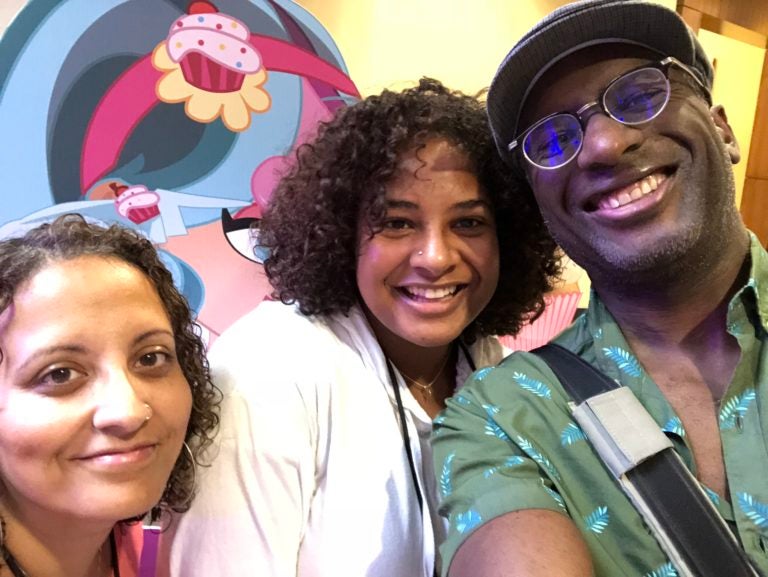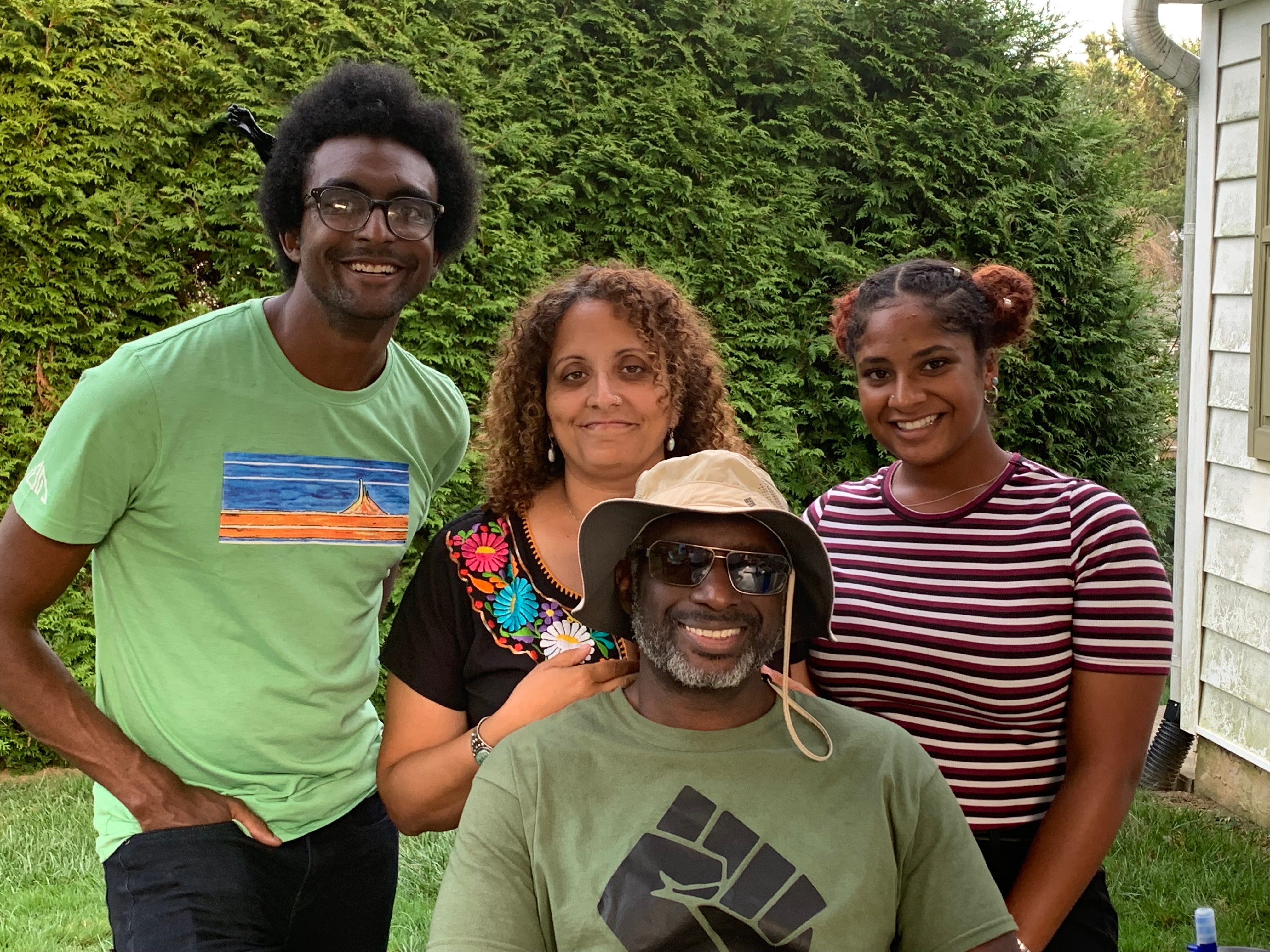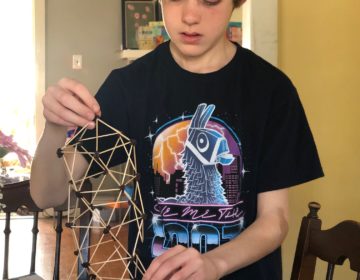How the coronavirus put me face-to-face with familial privilege
Howard University student Joycelin Farmer wrestled with gratitude and guilt after being evicted from campus and returning to a wonderful home life.

The author (center) with her parents at BlerdCon. Courtesy of Joycelin Farmer.
I have always been aware of my familial privilege, as I have come to call it. Unlike many of my friends, colleagues and peers at school, I love my home life. Phone calls home rarely feel like a chore and I always look forward to spending time with my parents and brother.
My parents and I can talk about almost anything, including the hard things about life: my childhood traumas, their mistakes, my mistakes, and even our varying opinions on politics and religion. When I don’t like something, I can address it. And when my parents don’t like something, they address it.
We don’t slam doors in anger. We examine our emotions. And we don’t repeat mistakes.
My parents know me better than anyone else alive. And I have come to realize that the closeness I experience with them isn’t replicated in every household. But even with that awareness, it was the seemingly abrupt outbreak of the coronavirus (Ms. Rona as I call her) that really put me face-to-face with my privilege.
Being evicted from Howard University – the historically Black college in Washington D.C. which temporarily closed its campus due to the unprecedented health crisis that’s projected to kill up to 200,000 Americans – wasn’t detrimental to me. In fact, I was happy to move back home.
I was looking forward to quarantining, having family time, and collectively working from home: my father in the living room, my mother in her bedroom, and I in mine. Among my biggest concerns now is remembering to text mom what treats to bring home.
But for many people, friends and strangers alike, home means tears, worries – such as no internet to access online learning – and headaches. Home is the last place they want to be.
Ms. Rona has affected me, but not in the ways most would assume. Sure, I’m stressed about online classes. I’m very concerned about my mother, who works as a midwife, going into the hospital. And, of course, I miss my friends.

But my biggest personal grievance with Ms. Rona is that, just for a moment, she turned my gratitude into guilt. In one breath, I was appreciating my family and, in the next, I’m struggling to respond to a friend who was venting about theirs.
At that moment, I didn’t believe that I was the right person to offer advice. I asked myself: “Who was I to say she can get through neglect, emotional abuse, or excessive parental control? Who was I to opine about a broken home, when I don’t know that type of pain?
I felt guilty for what I have. But then I came to my senses. The problem is not that I have a family who provides for me; it’s that others don’t. The question is not whether I deserve what I have; the question is how can others obtain it for themselves?
This issue isn’t that people are privileged, the issue is that people don’t utilize their privilege for good. So that’s what I’m off to do.
I’m ready to console my friends and peers and provide support to those who need it. I’m offering my ear to those who need to rant. I’m even willing to share my amazing mother with those who could use some maternal love. I’m also sewing filtered face masks for the public.
When I stop being grateful, that’s when I need to be guilty.
But I’m always grateful, and there’s no room for guilt during a pandemic. Guilt has no place in improvement or change. So, I put my guilt away. I’ve replaced it with productivity, because I want to do my part to ensure that Ms. Rona can retire in time for summer.
Joycelin Farmer is a Howard University student who wants to one day work in education policy.
Becoming a storyteller for WHYY, your local public media station, is easier than you might think. Text STORYTELLER to 267.494.9949 to learn more.
WHYY is your source for fact-based, in-depth journalism and information. As a nonprofit organization, we rely on financial support from readers like you. Please give today.




![CoronavirusPandemic_1024x512[1]](https://whyy.org/wp-content/uploads/2020/03/CoronavirusPandemic_1024x5121-300x150.jpg)


